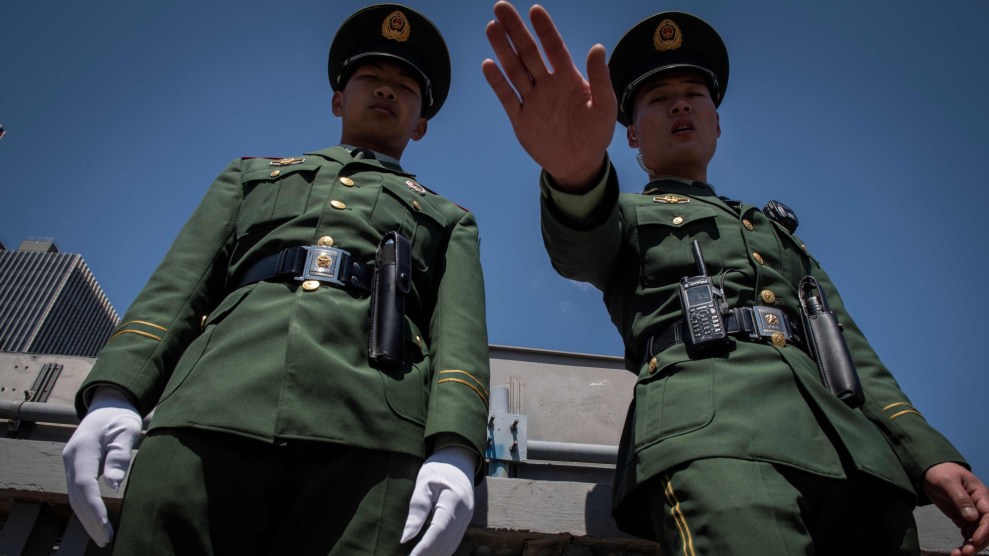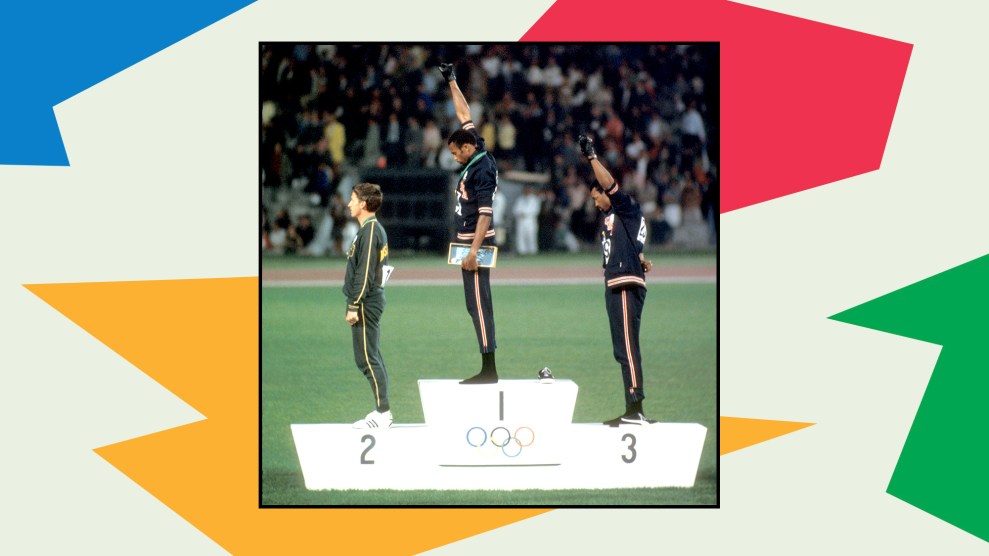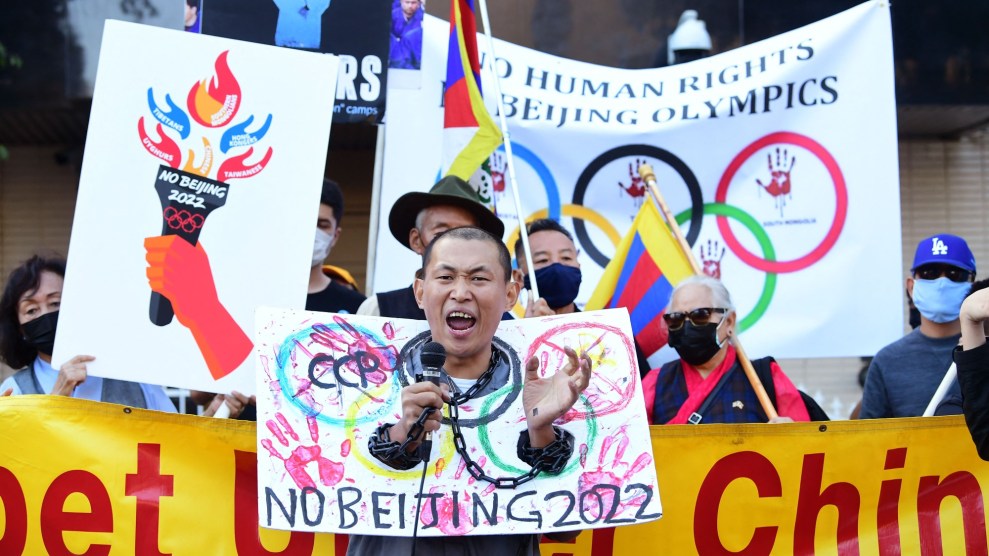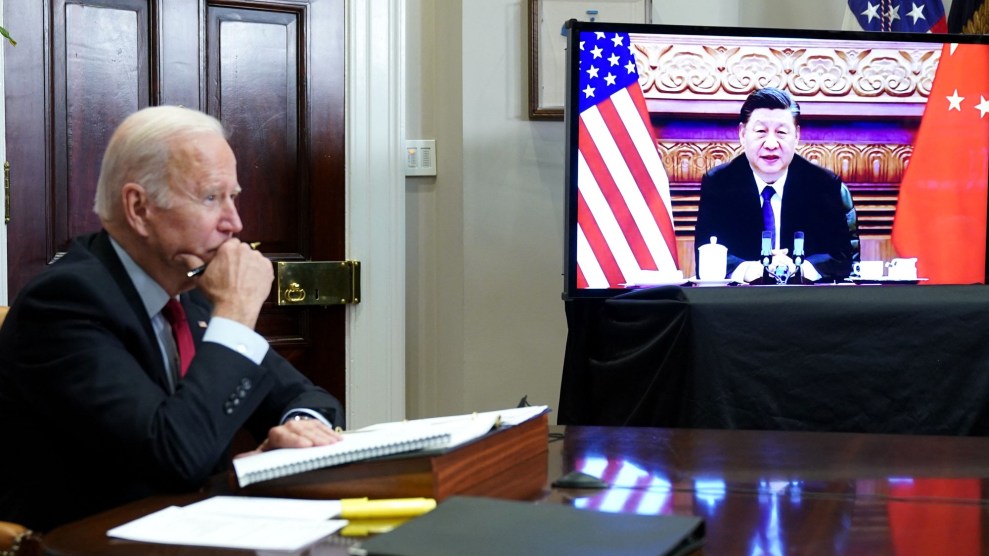
Nicolas Asfouri/AFP/Getty
One moment Dutch journalist Sjoerd den Daas was reporting live from outside the Olympic opening ceremony in Beijing. The next he was being “forcibly pulled” by a plainclothes security officer while another one blocked the camera from capturing what was happening.
The episode is only the latest troubling sign of the Chinese government’s crackdown on free expression and journalism under leader Xi Jinping. China’s brutal censorship of activists and repressive treatment of Uyghurs, Tibetans, and Hong Kongers has been a dominant storyline in the lead-up to the games despite the International Olympic Committee feeble attempts to pretend this is all normal.
The IOC predictably downplayed the incident. “These things do happen and I think it’s a one-off,” IOC spokesperson Mark Adams told Reuters, adding that the IOC had been in touch with den Daas’ broadcaster after the “unfortunate incident.”
Neither part of that statement appears to be true. The NOS, a public broadcaster for which den Daas was reporting on the games, said no one from the IOC had spoken to them about the incident. As for the idea that this was a “one-off,” den Daas said police have routinely interfered with journalism in Beijing, just not so publicly:
Therefore, it’s hard to see last night's incident as an isolated incident, as the IOC claims, although such interference rarely happens live on broadcast. And now back to work.
— Sjoerd den Daas (@sjoerddendaas) February 5, 2022
It is not hard to believe den Daas’ account given the Chinese government’s routine harassment of journalists. Earlier this year, a prominent pro-democracy newspaper in Hong Kong was shut down and its leaders were arrested. Out of 180 countries, Reporters Without Borders ranked China 177th on its World Press Freedom Index—two spots above North Korea.
The IOC has refused to reckon with the threat the Chinese government poses to journalists, athletes, and activists. On Thursday, IOC president Thomas Bach said his organization must maintain “political neutrality” because “if we are taking a political standpoint, we are getting in the middle of tensions and disputes and confrontations between political powers.” A day later, den Daas was manhandled and in Hong Kong, a 75-year-old activist with Stage 4 cancer was arrested for protesting the Olympics.
“These things do happen.” The IOC was right about that. But somehow they cannot bring themselves to say whether or not it should.
















